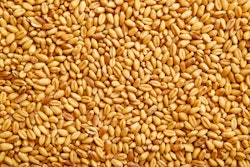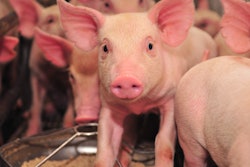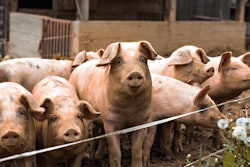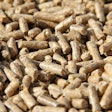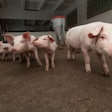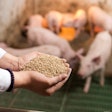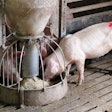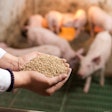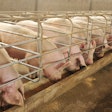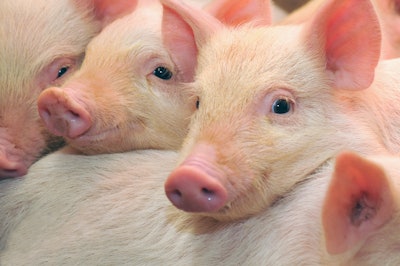
Benzoic acid — a food preservative of interest to researchers for its antibacterial properties, could also reduce ammonia emissions from pig production, according to new research from North Carolina State University.
The study determined that a 1% inclusion of benzoic acid could reduce emissions of ammonia by 58% while also improving weight gain, feed efficiency and meat quality when compared with a control diet that used antibiotics instead of benzoic acid. While the use of benzoic acid at this level could prove cost-prohibitive for livestock producers, a lower rate of inclusion — approximately .6% — could also yield benefits at a lower cost, according to Sung Woo Kim, the William Neal Reynolds Distinguished Professor of animal science at North Carolina State University.
“With increased societal concerns about animal agriculture for its impacts on the environment, it is important for us to show that improvement in production efficiency is closely related to reducing environmental impacts,” Kim said. “Prior to the research with benzoic acids, we have evaluated opportunities with humic acids, fulvic acids and probiotics reducing nitrogen emission using a very similar research model we used in this study.”
Benzoic acid's known antibacterial properties could also help explain its ability to reduce emissions, Kim said. By reducing the amount of harmful bacteria in the intestine and improving gut health, benzoic acid may improve nutrient digestibility and reduce the excretion of nitrogen in manure, he said.
Alternatively, benzoic acid may decrease the activity of bacterial enzymes in manure that speed the release of nitrogen emissions from manure. Once absorbed, benzoic acid is converted to hippuric acid and excreted in the urine, which increases the acidity of urine and reduces this enzymatic activity in manure, Kim said.
While Kim believed the existing science on the topic is sufficiently established to justify the use of benzoic acid in pig diets to control nitrogen emissions, he said his team plans to continue testing specific forms of benzoic acids — such as micronized and stabilized benzoic acid — to confirm whether they yield the same results.



